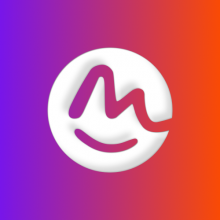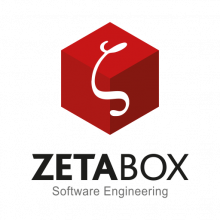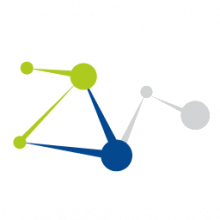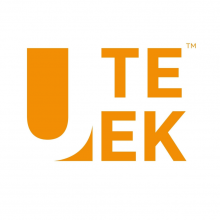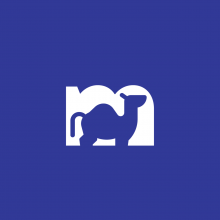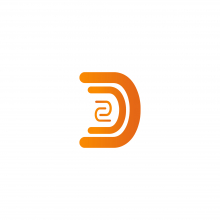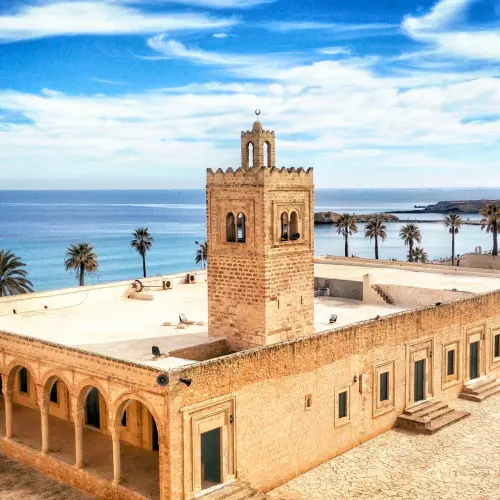
There are 12 Companies in Tunisia
that provide Flutter Development Services!
Low prices and the talent pool are the main reasons why Tunisia managed to attract direct foreign investments from international companies and organizations. Additionally, a valuable resource for the country's IT sector are skilled professionals, who over time have earned valuable experience and have increased the country’s performance in the field of digital services.
Discover Top IT Companies in Tunisia specialized in Flutter and other related services. Find the best IT service providers for your projects.
Flutter is an open-source UI (User Interface) framework developed by Google for building natively compiled applications for mobile, web, and desktop from a single codebase.
It was officially introduced by Google in May 2017, although its development began earlier as an internal project named "Sky." It aimed to address challenges in cross-platform mobile app development by providing a consistent and high-performance framework for building native-like apps on iOS, Android, and other platforms. Flutter has since gained significant traction and popularity in the developer community.
Handpicked companies • No obligation to hire • 100% risk-free
Featured Companies in Tunisia
This month, the following Flutter Development companies managed to provide an outstanding service and support. It's worth taking a look.
Mobirevo is a Leading custom software development agency focused on web, mobile app development & saas application development.
We provide tailored web, mobile & enterprise software globally, serving public & private clients in Europe and Tunisia.
ZetaBox delivers custom software development, transforming ideas into powerful, scalable solutions with cutting-edge technology and client focus.
Explore Top Flutter Development Companies in Tunisia
A pioneer in travel technology with a variety of services offering cutting-edge IT solutions for the international travel industry.
Digital Marketing Agency Interacti Marketing Agency is a marketing agency based in Sfax, Tunisia.
Services:
Tailored Solutions for Mechatronic Systems, AI & Automation, from embedded systems and ERP platforms to machine learning–driven applications.
Avempace is a design center for embedded systems and IoT solutions with a proven expertise of real time audio/video communication, wireless and RFID
Services:
Astra Digital Solutions builds custom websites, designs, and SEO strategies to help brands grow and stand out in the digital space.
We help companies digitize their operations through innovative software solutions
CAMEL SOFT LLC is a leading provider of IT solutions and services company.
Services:
DuetoData is your digital Solution provider, We unlock new businesses through Digital Solutions based on Data.
Filter Flutter Development Companies in Tunisia by Cities
Find the right tech company near you or from a specific city. Some of the best companies might be located in smaller cities.
Find more Flutter Development companies around the world
TechBehemoths is the world's most advanced and user-friendly platform to match IT Companies with real clients without hustle.
The Tunisian IT Industry: Overview & Insightful Data
Tunisia aims to position itself as a strategic hub in the Middle East and North Africa by becoming one of the top-performing countries in the region in terms of datacom infrastructure and IT business environment.
In order to promote Tunisia as an attractive destination for outsourcing services and an anchor in the global digital movement, the government has lifted the ban imposed by the Telecommunications Regulatory National Agency (ANRT) on Internet Protocol (VoIP) services.
According to a report published by The Brookings Institution in October 2016, the VoIP ban resulted in US$320m of economic loss for Tunisia during the first half of 2016. The situation ameliorated in 2024, with GDP growing by 1.4% with a slow recovery from the challenges in 2023.
In terms of digital progress, Tunisia still struggles with disparities in access to computer technologies in crucial sectors. Even though 60% of Tunisians had access to the internet last year, the country’s 2025 network readiness index remains relatively low, ranking 96th out of 139.
Why You Should Work With Tunisian IT Companies
Low prices and experienced professionals are the main reasons why Tunisia managed to attract direct foreign investments from international companies and organizations. Since the country has focused a lot on BPO services, it may be challenging for locals to establish their own IT and digital companies in a country with a poorly developed IT industry.
What You Should Pay Attention to When Working With Tunisian IT Companies
The local IT companies are mainly focusing on BPO due to a poorly developed IT infrastructure. The only valuable resource remains skilled professionals, who over time have earned valuable experience and have increased the country’s performance in the field of digital services.
How Reliable Are Tunisian IT Companies
In terms of reliability, the Tunisian IT companies benefit from foreign companies’ reputations. 82% of all IT companies from Tunisia are multinational or international agencies and investors aiming to attract a low-cost and decent quality workforce.
The main investors in the Tunisian IT industry are French tech companies, which are extending their network and influence in North Africa and the Mediterranean regions.
How Does the Tunisian IT Industry Relate to the Neighboring Countries?
The close proximity to Spain makes Tunisia look weak in front of new technology challenges, and the poorly developed IT infrastructure, with banned services and risk to terrorism, gives no chance to the country to compete with Spain or Portugal in South-West Europe.
On the other hand, Tunisia is probably the most developed country in North Africa and has the potential to achieve what it was aiming for in the first place - A strategic regional hub. However, Tunisia needs strong financial support from the international community and also transparency and democratic institutions to lead the necessary reforms for the country’s development overall, and particularly in the IT industry.
What is Flutter and what are its benefits for your projects?
Flutter is an open-source UI (User Interface) framework developed by Google for building natively compiled applications for mobile, web, and desktop from a single codebase.
It was officially introduced by Google in May 2017, although its development began earlier as an internal project named "Sky." It aimed to address challenges in cross-platform mobile app development by providing a consistent and high-performance framework for building native-like apps on iOS, Android, and other platforms. Flutter has since gained significant traction and popularity in the developer community.
Flutter has seen rapid adoption, thanks to its key advantages, such as a single codebase for multiple platforms, a rich set of pre-designed widgets, and fast development cycles. It has found use in various industries, including mobile app development, web development, desktop applications, and even embedded systems. Some notable apps developed with Flutter include Alibaba, Google Ads, eBay Motors, and more. Its usage continues to grow, and it has a strong developer community and ecosystem.
Flutter is versatile and suitable for a wide range of projects:
- Mobile Apps: Flutter is commonly used for developing mobile applications, including consumer apps, business apps, e-commerce apps, social media platforms, and more. It provides a native-like experience on both Android and iOS.
- Web Apps: Flutter can be used to build web applications, allowing developers to target browsers as well. This is still in the experimental phase (as of my knowledge cutoff date), but it shows promise for building responsive web interfaces.
- Desktop Applications: Flutter supports desktop platforms like Windows, macOS, and Linux. Developers can create desktop applications for various purposes, including productivity tools and utilities.
- Embedded Systems: Flutter can be used to create user interfaces for embedded systems and IoT (Internet of Things) devices, providing a consistent look and feel across different hardware.
- Custom UI Components: Flutter is often used to build custom UI components and widgets that can be integrated into larger applications, providing a cohesive design language.
Hourly rates for Flutter developers can vary significantly based on factors like location, experience, project complexity, and demand. On average, Flutter developers may charge anywhere from $25 to $150 or more per hour. Rates tend to be higher in regions with a higher cost of living, such as North America and Western Europe, and lower in regions with lower living costs, such as Asia and Eastern Europe.
It's important to note that more experienced and specialized Flutter developers with a strong track record may charge higher rates. Additionally, some developers or development agencies may offer fixed-price contracts for specific Flutter projects, which can vary widely based on the project's scope and requirements.
When hiring Flutter developers, it's essential to consider factors like their expertise, portfolio, and the complexity of your project. Getting multiple quotes and conducting interviews can help you determine a reasonable rate and find the right developer or team for your specific needs.
We have also written an extensive research of what skills you should be looking for when hiring Flutter developers.
